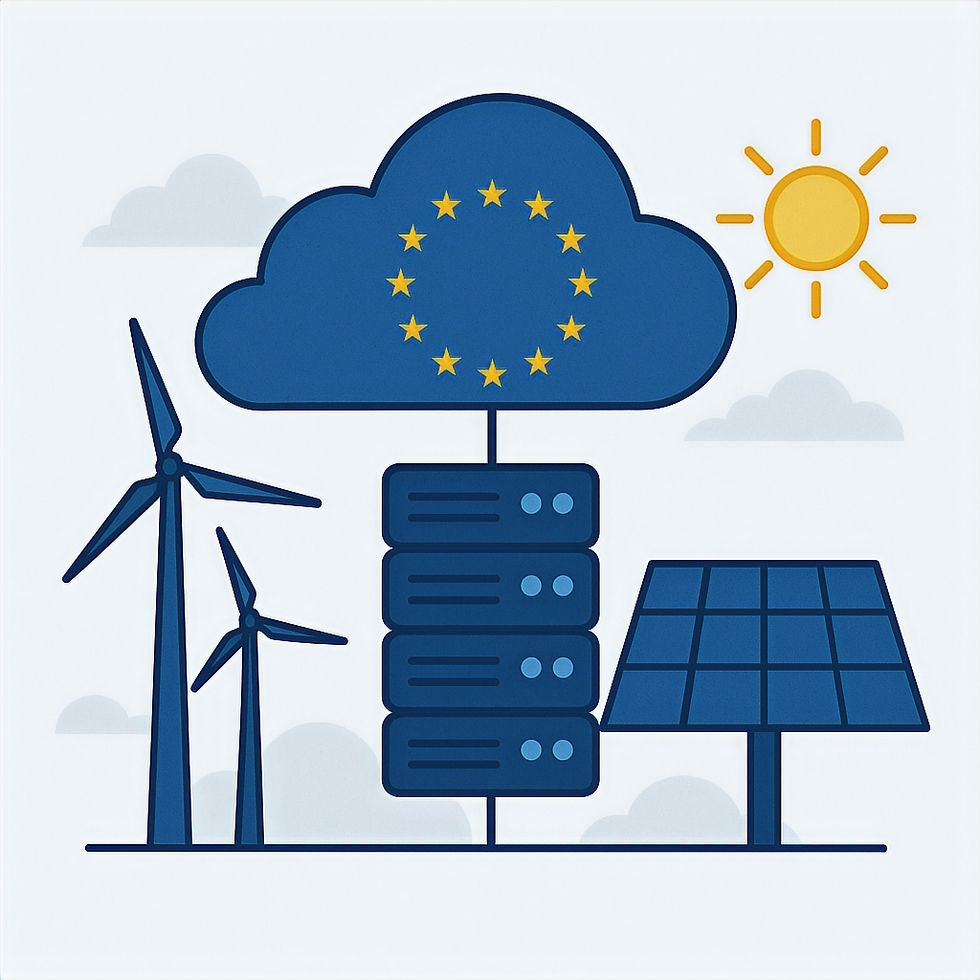Europe's digital sovereignty: Lidl gets involved – and paves the way for an independent energy future
- Frank Hummel

- Jul 22, 2025
- 2 min read

Whether artificial intelligence, cloud computing or data centers – Europe’s digital
Infrastructure has so far been heavily dependent on American tech companies. Amazon, Microsoft, Google, and others dominate not only our digital lives, but also key areas such as cloud services, search engines, AI platforms, and mobile operating systems.
But this dependence is not only an economic risk – it also endangers the transformation in the energy sector.
Energy transition needs digital sovereignty
The future of our energy supply is decentralized, electric and data-driven : photovoltaics on the roof, battery storage in the basement, heat pumps instead of gas heating, intelligent grids, bidirectional charging, smart meters and real-time energy platforms.
All of this will only work with a reliable, secure, and high-performance digital infrastructure – ideally from Europe. Because when data from millions of energy plants, vehicles, and buildings flow through American servers, a new dependency relationship emerges – right at the heart of the energy transition.
Lidl shows how it can be done differently
One company boldly leading the way in this area is the Schwarz Group – parent company of Lidl and Kaufland . What many people don't know is that the group operates its own European cloud platform, STACKIT , which is already being used by numerous companies and public institutions.
The Schwarz Group is currently even planning to build an "AI Gigafactory" – a massive data center for the development of European AI applications. This will transform a trading group into a strategic player in Europe's digital transformation and create the conditions for digital independence in the energy sector.
The energy of the future is digital – and should be European

A new market is emerging, especially in the energy sector: platforms for energy management, grid stabilization, dynamic electricity tariffs, and cross-sector control (electricity, heat, mobility). Those who rely on European solutions here benefit twice:
Technological sovereignty and data protection
Eligibility and regulatory certainty
Strengthening regional value creation
My conclusion
The energy transition needs a digital infrastructure that aligns with our values – open, secure, and European. Companies like Lidl demonstrate that this is possible. Those who invest in local solutions today secure long-term benefits – both economically and strategically.
Now is the right time for companies, organizations and municipalities to rethink their digital infrastructure – especially where energy flows need to be controlled and optimized.


